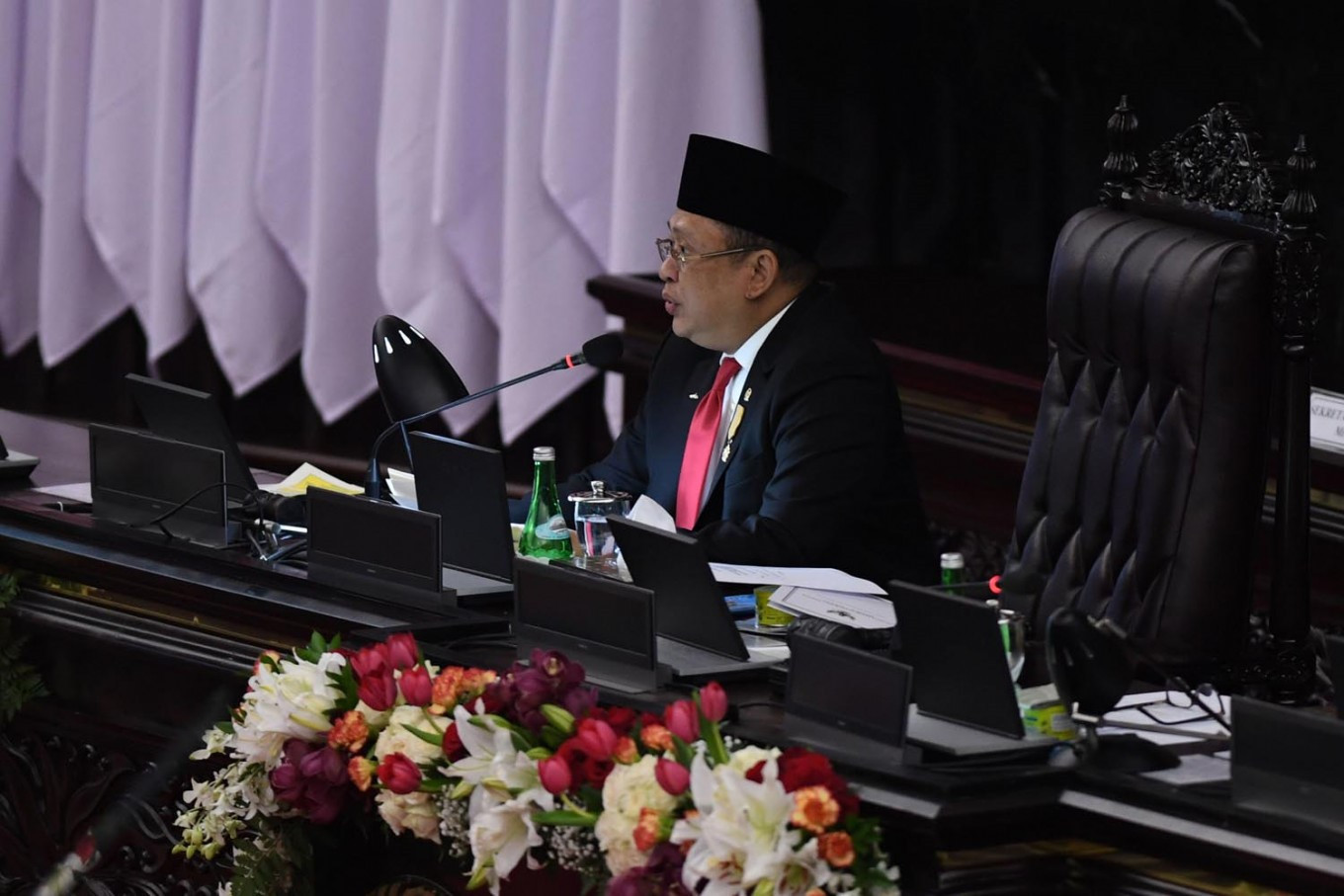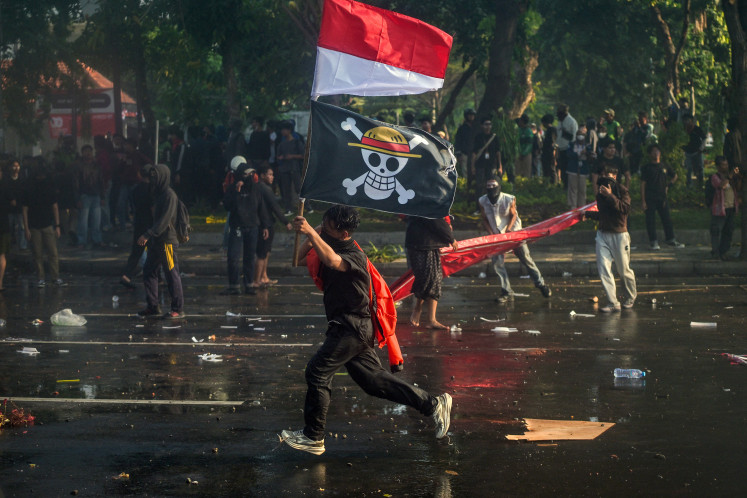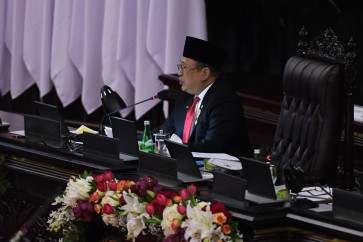Popular Reads
Top Results
Can't find what you're looking for?
View all search resultsPopular Reads
Top Results
Can't find what you're looking for?
View all search resultsAnalysis: MPR posthumously restores names of disgraced ex-presidents
Change text size
Gift Premium Articles
to Anyone
T
he People’s Consultative Assembly (MPR), the country’s highest democratic institution, has revoked or reviewed decrees that have besmirched the reputation of Sukarno, Soeharto and Abdurrahman “Gus Dur” Wahid, respectively Indonesia’s first, second and fourth presidents, all of who are deceased. While the gesture to restore the good names of Sukarno and Gus Dur has not stirred up controversy, some have objected to the Assembly’s attempt to clear the way for conferring National Hero status on authoritarian ruler Soeharto.
The decrees had cast a dark shadow over the three ex-presidents, despite their historical contributions to national progress and development.
In 1967, the Assembly issued a decree to hold Sukarno responsible for the abortive coup on Sept. 30, 1965 blamed on the Indonesian Communist Party (PKI), which was then embroiled in a power struggle with the Army. Indonesia’s first president was deposed in 1966 by Soeharto, an Army general who led the campaign to crush the PKI and its affiliates, and died in disgrace in 1970.
In 1986, his successor conferred Sukarno the title of Proclamation Hero, along with Muhammad Hatta, for declaring Indonesia’s independence on Aug. 17, 1945. The international airport serving Jakarta was also named after them.
The Assembly has now revoked the 1967 decree, saying that Sukarno’s complicity with the PKI’s attempted coup in 1965 was never proven.
In 1998, the Assembly issued a decree on a national drive to clean up corruption, collusion and nepotism (KKN) in the government and to take strong actions against anyone involved in such activities, “including Soeharto”. While the decree remains in place, Soeharto’s name has been excised from the document, with the Assembly saying it no longer applied to him, as he had died.
Soeharto was forced to step down in 1998 as a result of nationwide protests led by university students as the economy tanked due to massive corruption by his regime, precipitated by the Asian financial crisis. Attempts to prosecute him later for corruption failed, primarily because he was deemed medically unfit to stand trial. He died 10 years after his ouster, in 2008.



















